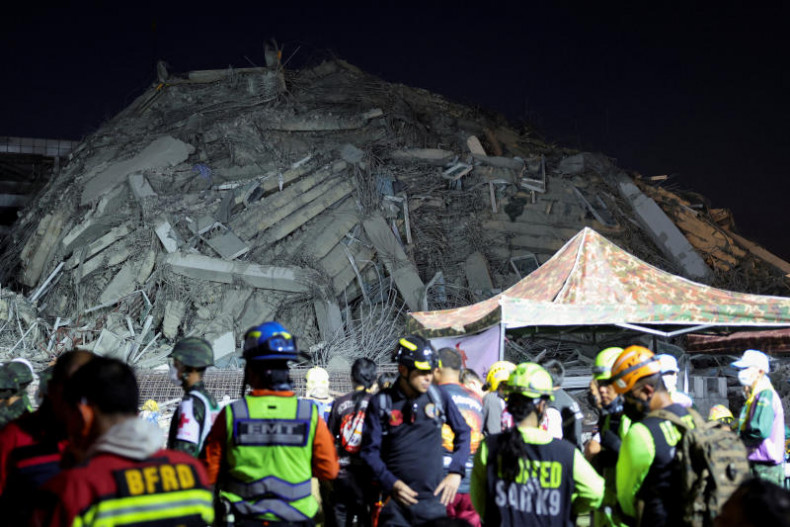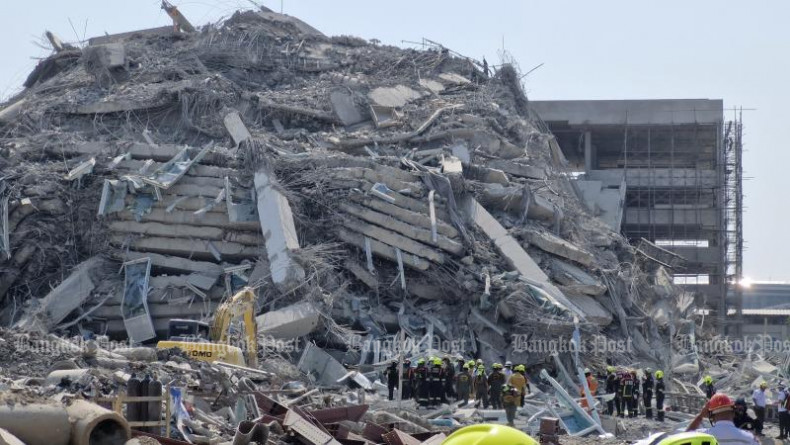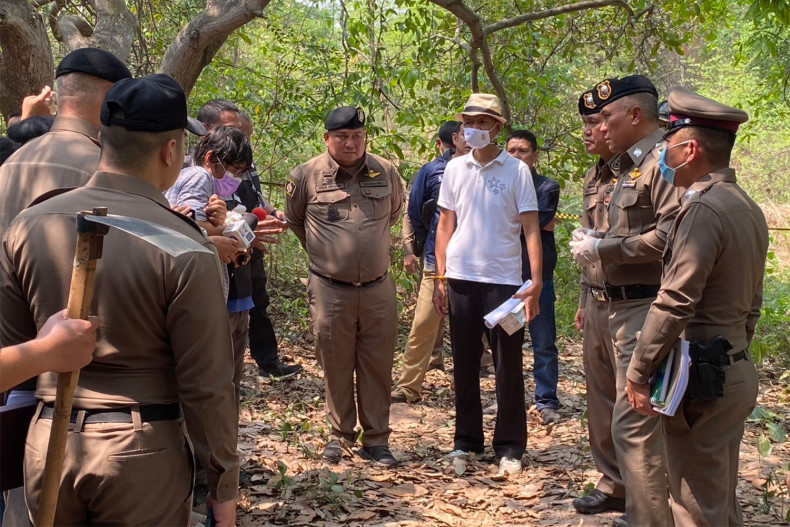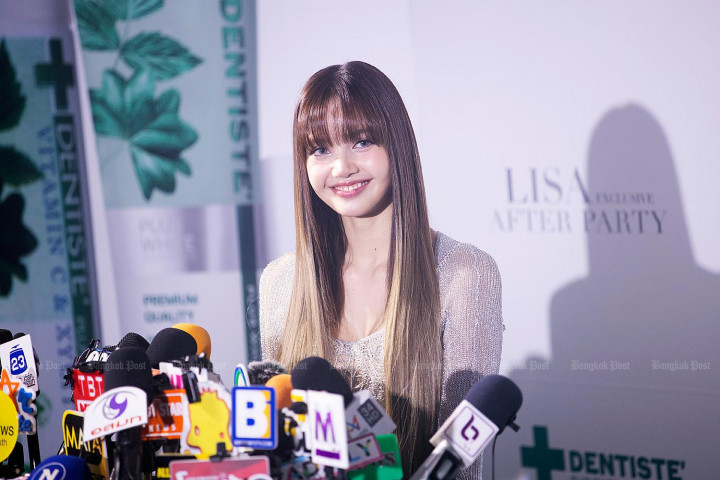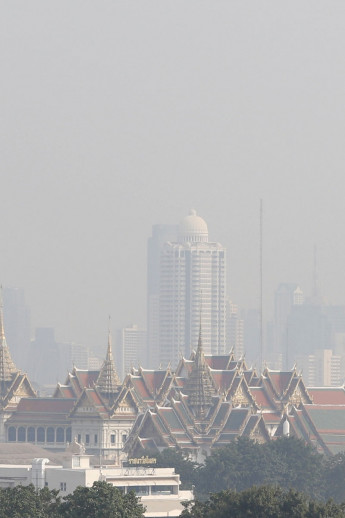30 MAR 2025 | 12:27:19 GMT+7

THAILAND
30 Mar 2025
Casino bill could face legal action

THAILAND
30 Mar 2025
Casino bill could face legal action
-
11:45
Pentagon chief says US will ensure 'deterrence' across Taiwan Strait
-
11:45
Ukraine accuses Russia of 'war crime' with military hospital strike
-
11:19
Paetongtarn leads Natthaphong for PM but People’s Party crushes Pheu Thai: polll
-
10:14
Hotlines open for building checks
-
09:55
WHO proposing to cut jobs and slash budget by a fifth, memo shows
-
09:49
Protesters rally against Elon Musk at Berlin Tesla showroom
-
politics | 25 Mar 2025
The burden of giving
-
politics | 23 Mar 2025
List of censure hits grows
-
POLITICS | 28 Mar 2025
Vote-buying claim preposterous: DPM
-
POLITICS | 27 Mar 2025
Deputy PM unperturbed by Senate poll probe
-
SPECIAL REPORT | 29 Mar 2025
New giveaway, old problems
-
SPECIAL REPORT | 23 Mar 2025
Crunch debate to test Pheu Thai
-
SPECIAL REPORT | 17 Mar 2025
US' DEI curbs spark local fears
-
SPECIAL REPORT | 16 Mar 2025
Casino plan could lead to Pheu Thai's downfall

PR NEWS | 29 Mar 2025
CP Axtra Leads Retail Tech Shift with FRESH FORWARD
-
PR NEWS | 29 Mar 2025
Singha R-SA has worked tirelessly since a powerful earthquake was felt in Bangkok on Friday afternoon
-
PR NEWS | 28 Mar 2025
The Future of Marketing Agencies Lies in Collaboration, Not Competition
-
PR NEWS | 28 Mar 2025
SNS, J-PARK, IWG Launch Regus in Sriracha
-
PR NEWS | 28 Mar 2025
BMHH Champions Personalised Mental Health Care in Thailand

PEOPLE | 27 Mar 2025
Aelm Thavornsiri: Fights On, Beyond the Spotlight
-
PEOPLE | 19 Mar 2025
New Chayapak: The Phenomenal Rise behind “Four-Mod” Gelboys
-
PEOPLE | 17 Mar 2025
Lek Patravadi: The Visionary Who Revolutionized Thai Theatre and Took on Hollywood
-
PEOPLE | 12 Mar 2025
“Chef Pom” M.L. Kwantip Devakula: A Flavourful Life Infused with Tradition and Exploration
-
PEOPLE | 10 Mar 2025
Ticha Kanticha: The Fierce Fighter Defining Her Own Path
-
GENERAL | 29 Mar 2025
Bangkok Airways keen on passenger numbers
-
GENERAL | 29 Mar 2025
Unpacking the debt-to-GDP ratio
-
GENERAL | 29 Mar 2025
Investors urged to adjust portfolios
-
GENERAL | 29 Mar 2025
Bangkok Bank gears up for sustainability scheme

MOTORING | 28 Mar 2025
DUP/Thai auto sector frets over planned US tariffs
-
motoring | 28 Mar 2025
DUP/Thai auto sector frets over planned US tariffs
-
motoring | 25 Mar 2025
Thai auto industry shows signs of revival amid slump
-
MOTORING | 26 Mar 2025
Car producers postpone export models
-
MOTORING | 25 Mar 2025
BYD sales pass $100 billion, topping Tesla

INVESTMENT | 29 Mar 2025
Investors urged to adjust portfolios
-
INVESTMENT | 25 Mar 2025
Twenty listed firms seen likely to prep share buybacks
-
INVESTMENT | 25 Mar 2025
Foreign investment surges in first 2 months
-
INVESTMENT | 22 Mar 2025
Trump trade signals keep investors on edge
-
INVESTMENT | 22 Mar 2025
Oversold bounce and sector rotation
Currency/Baht
Buy (Baht)
Sell (Baht)
33.7306
34.0591
43.4543
44.261
36.2167
36.8889
22.1598
22.7968
4.3235
4.3935
4.6094
4.7157
Source: Bank of Thailand (30 Mar 2025)
BANGKOK
Clouds
32°/35°
CHIANG MAI
Clouds
33°/35°
PATTAYA
Clouds
31°/31°
SURAT THANI
Clouds
29°/31°
PHUKET
Clouds
31°/31°
KANCHANABURI
Clouds
36°/36°
Source: openweathermap.org (30 Mar 2025)
SET
1,175.45
-12.45
SET50
750.73
-8.37
SET50FF
751.34
-7.07
SET100
1,619.10
-18.50
SET100FF
1,624.84
-16.00
sSET
616.88
-5.34
SETCLMV
612.08
-7.80
Source: settrade.com (30 Mar 2025)
Buy (Baht)
Sell (Baht)
GOLD (1 BAHT WEIGHT, 96.5%)
Buy (Baht)49,500.00
Sell (Baht)49,600.00
ORNAMENT (1 BAHT WEIGHT, 96.5%)
Buy (Baht)48,602.96
Sell (Baht)50,400.00
Source: GoldTraders (30 Mar 2025)
Date: 30 Mar 2025
Type
Today
Tomorrow
46.64
46.64
32.44
32.44
49.34
49.34
30.29
30.29
Type
Today
Tomorrow
33.78
33.78
34.15
34.15
Effective and projected prices as at ,
-
OPINION | 08:54
Bhikkhuni’s silent revolution
-
OPINION | 29 Mar 2025
A long fuse has been lit for war with Iran
-
OPINION | 29 Mar 2025
Unprepared for disasters
CHECK OUT YOUR WEEKLY HOROSCOPE
STAY INFORMED.
GET DAILY UPDATES FROM THE BANGKOK POST.
By subscribing, you accept the terms and conditions in our privacy policy.



































